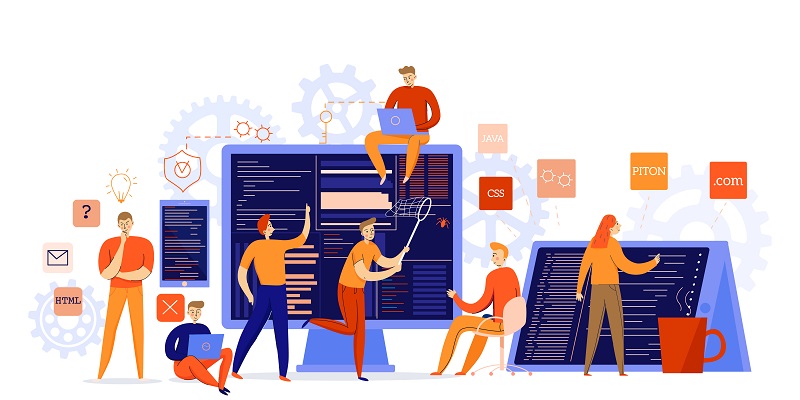In today’s fast-paced and technology-driven world, having a reliable and scalable IT infrastructure is crucial for the seamless operations, efficient data management, and overall success of businesses. IT infrastructure encompasses a comprehensive set of hardware, software, networks, and facilities that support an organization’s technology requirements. Let’s delve deeper into its components and the benefits it offers.
Components of IT Infrastructure
Hardware: The hardware component comprises physical devices such as servers, computers, routers, switches, and storage devices, which serve as the backbone of an organization’s technology infrastructure. These devices provide the necessary computing power and storage capacity to support various business functions.
Software: Software plays a vital role in managing and supporting day-to-day business tasks. This includes operating systems, applications, databases, and software tools that enable efficient data processing, analysis, and decision-making. Implementing suitable software solutions can streamline operations and enhance productivity.
Networks: Networks are the lifeline that enables data communication within and outside the organization. This includes local area networks (LANs), wide area networks (WANs), internet connections, and other network components. A robust network infrastructure ensures uninterrupted connectivity, enabling seamless collaboration and information sharing.
Security: In an era plagued with cyber threats, ensuring data security and protection is paramount. Organizations must stay one step ahead of potential risks by implementing robust security measures. This includes maintaining access controls, implementing firewalls and encryption, performing regular data backups, and staying updated with the latest security patches and protocols.
Data Centers: Data centers serve as centralized facilities housing servers, storage devices, communication equipment, and power infrastructure. These centers provide a secure and controlled environment for efficient data storage, backup, and retrieval. Building and maintaining well-designed data centers is essential for ensuring data integrity and minimizing downtime.
Cloud Services: With the advent of cloud computing, organizations now have access to virtualized infrastructure, storage, and software solutions over the internet. Cloud services offer scalability, flexibility, and cost-effectiveness, allowing businesses to adapt quickly to changing needs. Embracing cloud technology can enhance productivity, accessibility, and collaboration.
Benefits of a Reliable IT Infrastructure
Seamless Operations: A robust IT infrastructure enables businesses to operate smoothly without interruptions. It ensures that internal systems, applications, and networks run optimally, minimizing downtime and enhancing employee productivity.
Efficient Data Management: Effective data management is critical for organizations to extract insights, make informed decisions, and stay competitive. A dependable IT infrastructure allows for efficient data storage, retrieval, backup, and analysis, ensuring the availability of accurate and timely information.
Scalability: As businesses grow and evolve, their IT infrastructure needs to adapt accordingly. A scalable infrastructure allows organizations to expand their computing resources, storage capacity, and network capabilities as needed. This scalability ensures that the IT infrastructure can accommodate increased workloads and changing business demands.
Customer Satisfaction: A reliable IT infrastructure directly impacts customer experiences and satisfaction. It enables organizations to provide uninterrupted services, quick response times, and personalized experiences, ultimately fostering customer loyalty and driving business growth.
Business Continuity: Disruptions to IT infrastructure can lead to significant financial losses and damage to reputation. A robust IT infrastructure, coupled with effective disaster recovery and business continuity plans, ensures that organizations can quickly recover from any unforeseen events, minimizing downtime and maintaining continuity.
Investing in a robust IT infrastructure is essential for organizations aiming to thrive in today’s competitive landscape. By integrating reliable hardware, software, networks, security measures, data centers, and cloud services, businesses can benefit from seamless operations, efficient data management, scalability, customer satisfaction, and uninterrupted business continuity. Embrace the power of an advanced IT infrastructure and pave the way for long-term success in the digital age.

